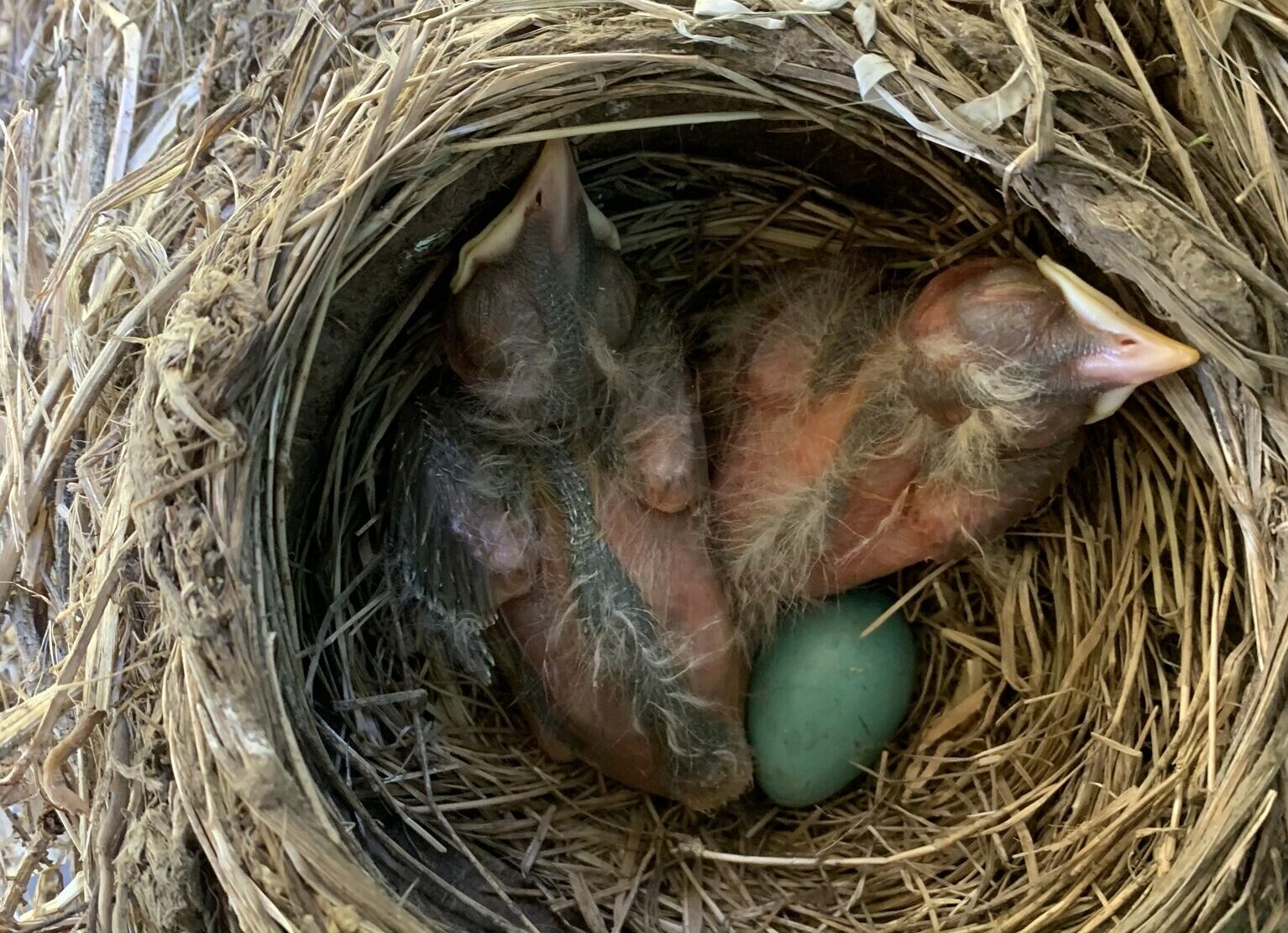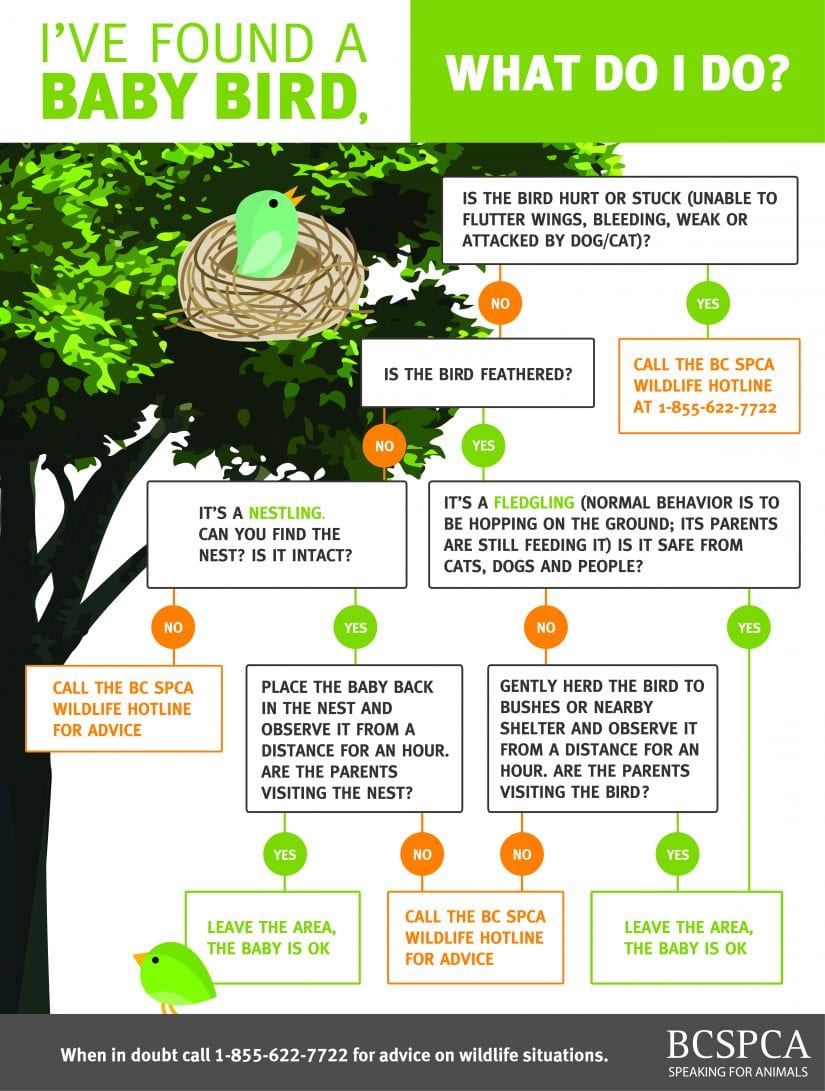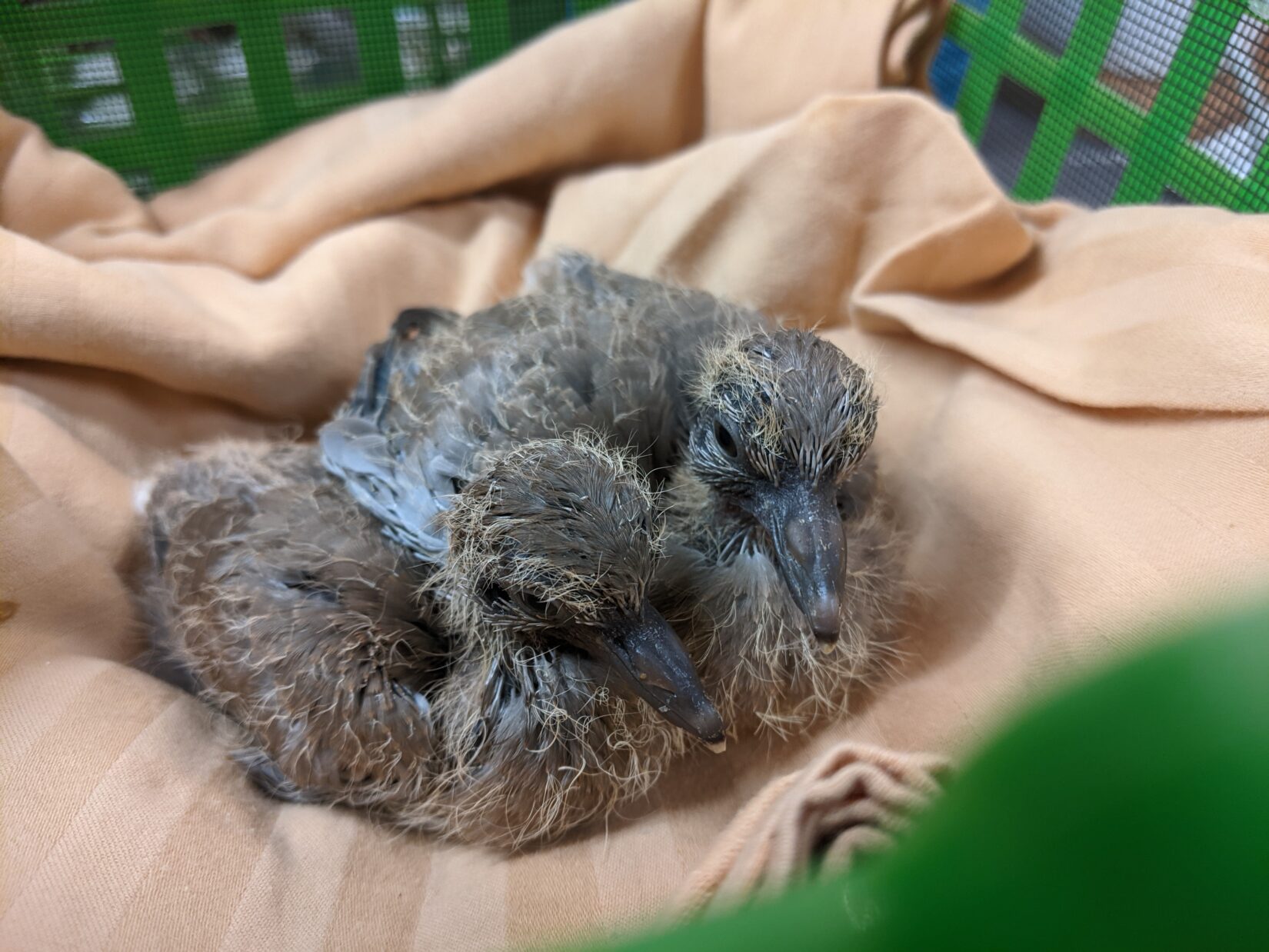Spring is on its way! This means there are plenty of baby animals of all shapes and sizes being welcomed into the world by their anxious parents throughout the province, including birds, who are in their nesting season.

Throughout spring and early summer, our feathered friends are busy caring for their young and it’s important for us to help keep them safe. As these baby birds grow up, there may be times when you find a baby bird, and it’s hard to tell if they need help or not. Some stages of their development will naturally look a little awkward – and while you may want to help, sometimes “help” can do more harm than good.
A baby bird will always need help if:
- They have an obvious injury (e.g., visible blood or broken bones)
- There are other dead birds in the nest
- They are caught by a cat, or a cat discovers the nest
- The babies appear lethargic instead of bright and alert

Even with the best of intentions, trying to lend a helping hand could actually cause more trouble for baby birds and their parents. Knowing what to look for when you see a baby bird is key to deciding whether or not you need to help.
Every year, wildlife rehabilitators receive healthy fledgling birds from people that have unknowingly kidnapped the young birds from their parents. A fledgling outside the nest may be okay, but a nestling outside the nest means trouble.
Hatchling, nestling or fledgling?
A hatchling is a featherless, downy baby bird, whereas a nestling is an incompletely feathered bird. Hatchlings and nestlings shouldn’t be outside the nest. If you find them on the ground, you can try to return the bird back to his nest, which could be in a nearby tree, shrub or on the outside of a building.
If you can reach, return the young one back home. Rest assured, your scent won’t cause the baby to be rejected. Be sure you’re putting them back in the right nest! The nest should be nearby, and the babies should look exactly the same. Putting baby birds into a nest that isn’t their own can lead to injuries or even the parents rejecting the nest.
If a nest has fallen to the ground and you can’t secure it back in its original position, contact your local wildlife rehabilitator or call the BC SPCA at 1-855-622-7722 for advice.
Fledglings are older, nearly fully feathered birds who are learning to fly and live out of the nest. When encountering these young birds, it’s important to be certain whether they truly require assistance.

Fledglings are often clumsy and can appear to be hurt or unable to fly when they’re really just practicing their flying skills. When they are first out of the nest, the parents still keep track of them and feed them for several days. Unless they are in immediate danger from predation or traffic, it’s best to leave them alone.
The fledgling stage is when baby birds are most vulnerable. Make your backyard safer by keeping cats indoors and dogs leashed and out of the area to help protect them during this stage. Another important factor in keeping baby birds safe is to never attempt to care for or raise them yourself.
Never try to give food or water to a baby bird. In B.C., it is illegal to keep or care for wildlife without a permit. A baby bird’s best chance for survival is with their parents, but if they can’t stay, then they will need professional help.
If you ever have any doubts about a bird’s safety, contact the BC SPCA at 1-855-622-7722 or your nearest wildlife rehabilitation centre for advice. They can help you determine if the bird needs help and what you can do for them.
